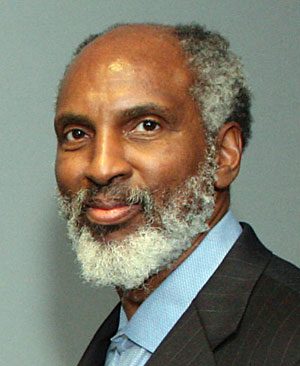At one of the workshops at the Unitarian Universalist Russell Lockwood Leadership School, where I am right now serving among the faculty, the Reverend Jan Christian cited something from an interview with john a powell (he prefers to use the lower case for his name) conducted by Krista Tippett.
The interview concludes with Professor powell telling a story. Jan read that anecdote to us. Now I find I can’t shake it. So, I rummaged around the web, found it, and, well, here it is.
I went to Stanford, and I was one of the co-founders of the Black Student Union at Stanford. And we had a meeting, and in that meeting, we decided that there were some definitely some good white people, but not that many. And it took a lot of energy to find them.
The transaction cost of finding good white people was way too high. So we decided, “OK. Let’s stop trying to find these — let’s not relate to white people.” Actually, I did not support that position, but that’s where the group went. And I left the meeting. It was about noon. And I was walking across Stanford. And I don’t know if you’ve actually been to Stanford, but the center part of Stanford is very busy, especially at noon. And there’s always people teeming about. And I’m walking back across campus in this area, and there’s nobody there. It’s empty. And all the time I was at Stanford, I’d never seen that part of the campus like that.
And then there’s this one woman walking toward me. Again, the physical space where students hang out is actually quite small, so you see students all the time. I’d never seen this woman before, and I never saw her again. And as she’s walking toward me, I notice she’s blind. And she has a cane. And she walks into a maze of bicycles. And I said, “Oh, that’s too bad.” And as she turns, knocks down bicycles, she starts panicking. And I’m thinking that’s really sad, but we just made this agreement. It’s not my problem. I keep walking. She turns again, and she knocks down more bicycles. And finally, I can’t walk past her. And I go over to her, and I take her out of the maze of bicycles. And then she goes on her way. And I go back to the meeting, and I say, “I can’t do it. I can’t adhere to that agreement.” And to me, that was one of the defining moments. And I sort of, like — I’m not a theist, but I wonder, how did the universe send that woman to me? That she helped me to engage and claim my humanity that took me on a different path. And I think being human is about being in the right kind of relationships. I think being human is a process. It’s not something that we just are born with. We actually learn to celebrate our connection, learn to celebrate our love. And the thing about it — if you suffer, it does not imply love. But if you love, it does imply suffering. So part of the thing that I think what being human means to love and to suffer, to suffer with, though, compassion, not to suffer against. So to have a space big enough to suffer with. And if we can hold that space big enough, we also have joy and fun even as we suffer. And suffering will no longer divide us. And to me, that’s sort of the human journey.
for the whole interview go here.













